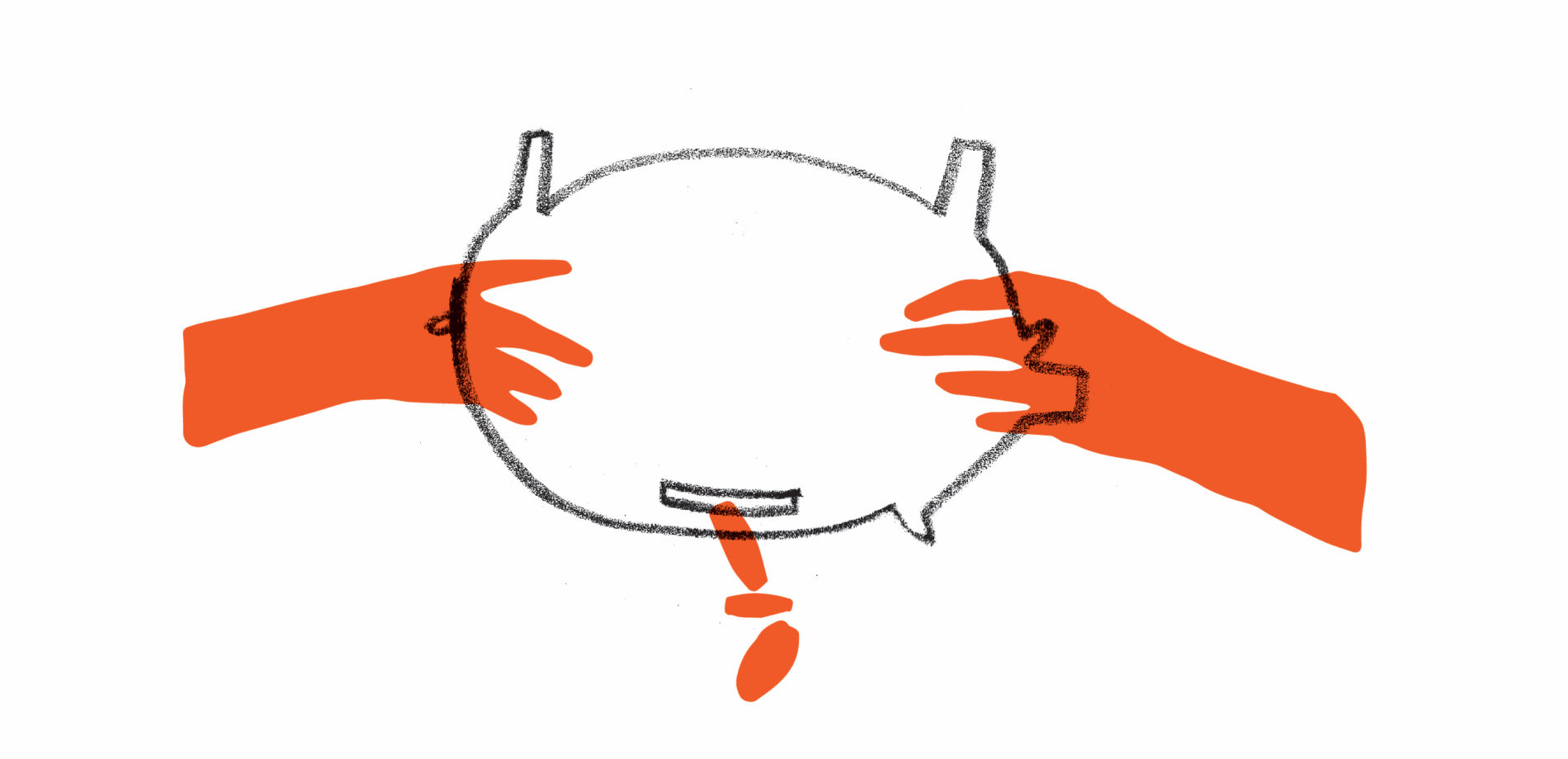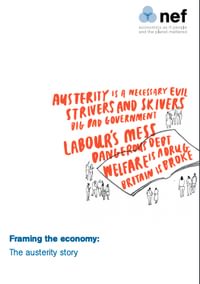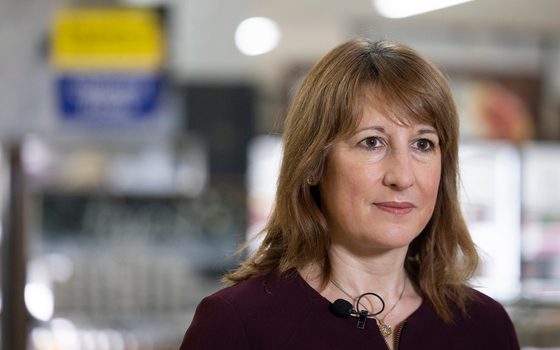Framing the economy
The austerity story shapes how most of us think and talk about the economy – but it isn't set in stone
11 September 2013
Well-framed, well-crafted and often repeated, the austerity story is the dominant political narrative in Britain today. It shapes how most of us think and talk about the economy. It has convinced most of the country of the need for huge public spending cuts and presents a coherent vision for the kind of society we should live in.
The austerity story
The Coalition tells a powerful story about the economy to make the case for austerity in the media and public communications. It is consistent, memorable, uses vivid images and emotional metaphors, and is simple enough to be understood and retold.
There are several frames that underpin it:
- Dangerous debt: the most important economic issue the UK faces is the size of public sector debt, caused by excessive public spending.
- Britain is broke: the UK’s public finances are like an individual household, which has spent all its money.
- Austerity is a necessary evil: there is no economic alternative to spending cuts.
- Big bad government: the bloated, inefficient and controlling government is getting in the way of progress, interfering in people’s lives and rewarding the undeserving.
- Welfare is a drug: like drug addiction, state support is tempting, but ultimately dangerous; benefit claimants are weak, reckless, undeserving and addicted to hand-outs.
- Strivers and skivers: there are two kinds of people in Britain: hardworking strivers and lazy skivers, we each choose which to be.
- Labour’s mess: all the faults of our economy can be pinned on the previous (Labour) Government and their out of control spending.

Most of the frames in the austerity story resonate with millions of people in the UK:
- Polling data shows that month on month, no matter what people think about the Coalition, they continue to believe their spending cuts are necessary for the economy.
- Attitudes to welfare have hardened over time so that half the country believe the unemployed choose to stay out of work.
- Evidence indicates that more people may blame Labour for the economic situation we are in now than did three years ago.
This has tough implications for austerity’s opponents: when a frame is strongly held we tend to ignore facts that do not fit with it.
The austerity story is a powerful narrative that is embedded in public consciousness. It cannot be challenged with facts.
Only with new frames and a different story about the economy can it be dislodged.
Challengers to the austerity story
A number of organisations and individuals communicate alternative narratives to the austerity story. None have the coherence or appeal of the Coalition’s account of the economy, although each offers insights into how we might tell a different story. The challengers’ weaknesses tend to fall into similar traps:
- Framing – opponents tend to accept Coalition frames or rely on negative and reactive frames that put forward no new vision for the economy. Where they do create new frames they often do not start where people are or resonate with what they believe about the economy.
- Storytelling – none of the challengers tell good stories with simple ideas and powerful images, they are more likely to rely on academic language. There is little unity in the stories that oppose austerity, and few common threads.
- Messengers – There are more people vocally supporting austerity in the media than opposing it, and those who do oppose the dominant story tend to be less confident or credible. The messengers for austerity seem more coordinated than those against it.
Towards a new story
The austerity story can be defeated, if its opponents identify and activate their own powerful frames. The frames must be developed from values and resonate with public opinion. They must be tested and refined based on what works. We outline some frames we believe could be used to build a new narrative, and a story that brings them together.
- Casino economy: our economy is like a casino, it is in need of reform so that it can be stable and useful.
- Treading water: we are not making any progress as a nation; we are running to stand still, struggling but not moving forward.
- Big bad banks: our current problems are the result of a financial crisis that we, and not the banks that caused it, paid for.
- Big guys and little guys: there are two types of people in Britain, the little guys who work hard and don’t get a fair deal, and the big guys who have money and power and play by their own set of rules.
- Jobs Gap: the biggest issue facing our country is the jobs gap: people who want to work but can’t, people who work hard but don’t take home a decent wage and young people who cannot be sure of a good job.
- Time for renewal: we need to rebuild and renew what made Britain great – from the railways to our education system. We need to invest.
- Austerity is a smokescreen: the Coalition uses the deficit as an excuse to do what they have always wanted to do like shrink the state and privatise the NHS.We cannot trust them; they aren’t out to help ordinary people.
The battle for the economic narrative will be won with stories, not statistics.
It is time the opponents of austerity tell a story of their own. To win, they will need to do more than find their frames, they will need to be more coordinated, responsive to public opinion and find more credible messengers.
Topics Banking & finance Inequality Macroeconomics Public services Work & pay








